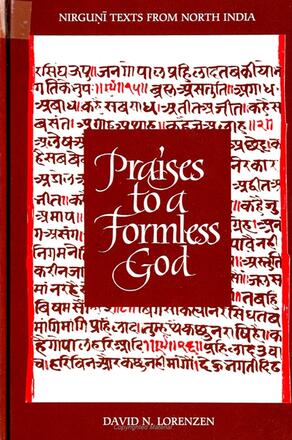
Praises to a Formless God
Nirguṇī Texts from North India
Alternative formats available from:
Discusses and translates important compositions by famous Nirguni poets--poets dedicated to the worship of a formless God.
Description
Nirguṇ bhakti--devotion to a formless God--has been called a logical absurdity, yet the songs, verses, and narratives of the nirgun poets of North India have played a vital role in both Hinduism and Sikhism since the late fifteenth century. The compositions of famous nirguṇī poets such as Kabīr, Raidās, Guru Nānak, and Dādu Dayal also form an essential part of the vernacular literatures of North India.
Other nirguṇī poets have made major religious and literary contributions to Indian culture but have been little studied by modern scholars. This book discusses, translates, and edits various important compositions by these poets. The texts include songs and narratives about the pious demon Prahlād, hagiographic songs about historical saints, the popular bhajans attributed to Kabīr, and the songs sung during the rites of the Kabir Panth. Two longer texts presented here are Jan Gopāl's narrative poem, the Prahilād charitra, and Sain's religious debate, the Kabīr-Raidās kā samvād.
David N. Lorenzen is a Professor at El Colegio de Mexico in Mexico City. He is the author of Kabir Legends and Ananta-Das's Kabir Parachai: With a Translation of the Kabir Parachai Prepared in Collaboration with Jagdish Kumar and Uma Thukral and with an Edition of the Niranjani Panthi Recension of this Work and the editor of Bhakti Religion in North India: Community Identity and Political Action, both published by SUNY Press.
Reviews
"Finally a scholar of proven erudition in Hindi texts has brought to the English-speaking world a powerful and pleasing introduction to the radical spirituality of medieval Hinduism. With fresh and interesting translations, Lorenzen has breathed new life into that acerbic and striking saint, Kabir, and shown why his nirguna school of popular Hinduism continues to be appealing to the great masses of Hindus today—its message of spiritual awakening and social justice moving especially those from the lowest strata of Hindu society. " — Mark Juergensmeyer, University of California—Santa Barbara